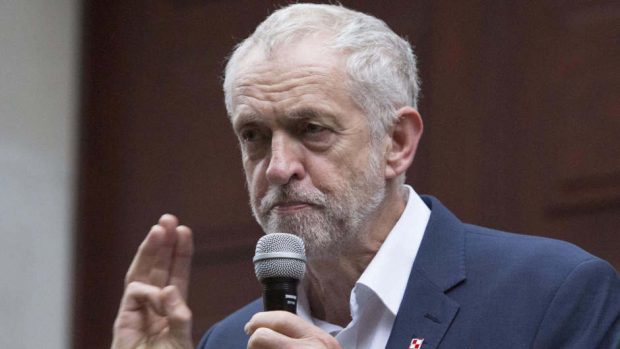Labour Leader Jeremy Corbyn last night apologised on behalf of his party for the “disastrous” decision to invade Iraq in 2003.
The long-term anti-war campaigner said it was owed first to the Iraqi people, insisting they had paid the “greatest price for the most serious foreign policy calamity of the last 60 years”.
An apology was also due to the families of the soldiers who died or were wounded, he added, as well as the millions of British citizens who believe their democracy was “traduced” and “undermined”.
In a speech in central London, he added: “The decision to go to war in Iraq has been a stain on our party and our country.”
Earlier, the Islington MP told the Commons that parliament had been misled by Tony Blair’s government and branded the war “an act of military aggression launched on a false pretext”.
He added: “It has long been regarded as illegal by the overwhelming weight of international legal opinion.”
In contrast, David Cameron insisted it would not be appropriate for him to apologise for the war as those who took the decisions were still alive.
The prime minister said Mr Blair should be accountable “in this House and in the court of public opinion” for his actions.
But he also said MPs who voted in favour of military intervention must accept their share of the responsibility too.
Scotland’s former first minister Alex Salmond argued “individuals” should be considered responsible.
The Gordon MP and SNP’s foreign affairs spokesman at Westminster raised the prospect of legal action in the wake of the inquiry’s “excoriating” verdict.
He accused Mr Blair of having “blundered the country into war”, adding it was clear he was personally to blame for the unnecessary conflict.
He said a closer examination of the report would “only implicate further a former prime minister who recklessly committed the country to war without collective judgment, and personally failed to ensure there was a plan for delivering a future for the people of Iraq”.
His comments came as former SNP deputy leader Jim Sillars called on Holyrood to “take the necessary legislative steps” to allow Mr Blair to be tried for war crimes for his role.
He said a retrospective Iraq War Crimes Act should be passed by the Scottish Parliament, as it would be an “outrage” if the former Labour prime minister was permitted to “walk away free”.
Patrick Harvie, co-convener of the Scottish Greens, described the report as a “damning indictment” of Mr Blair’s “blinkered, sickening devotion to George Bush’s warmongering”.
He added: “The UK Government and Ministry of Defence owe it to the UK families mourning their loss and the hundreds of thousands of Iraqis killed to ensure that such an appalling misjudgment never happens again.”
Lindsey German, convener of the Stop the War Coalition, said the report underlined everything the group had been saying for more than a decade.
Tory MP James Heappey, who served in the Army in Iraq, tweeted a photo of the inquiry with the caption: “So why was I really in Basra?”
Former Scottish secretary Alistair Carmichael said the report should be “the last chapter in a sorry episode of our country’s history”.
He added: “It vindicates the decision in 2003 by the Liberal Democrats, then led by Charles Kennedy, to vote against it (the war).
“That was not an easy decision but I have never doubted that it was the right one.
“It has long been clear that this was a war into which we should never have entered.”
